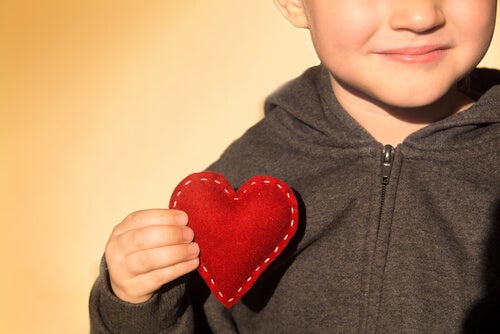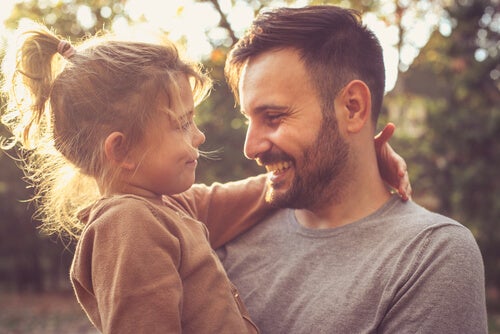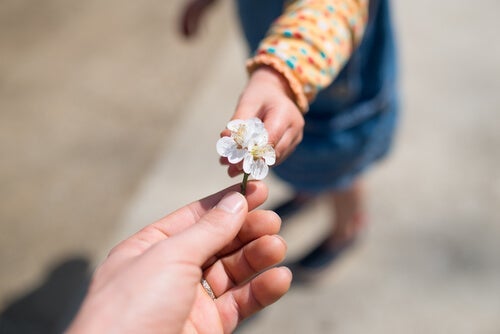(Exploring Your Mind) It takes time to teach children gratitude. The process has to follow their natural biological development so they can enjoy this wonderful virtue.
Related What Is the Point of Spirituality? | School of Life
by Staff Writer, January 2nd, 2020
To teach children gratitude, you have to do a lot more than teach them to say “thank you”. Helping them live with a grateful spirit is something else entirely. Gratitude is about more than just manners. It’s a mentality, a trait, and a way of life.
Gratitude is something that every child is capable of developing. It gives them the ability to recognize what other people do for them. Other positive personality traits usually accompany gratitude, such as generosity and kindness. A grateful child is less selfish, has a better attitude, gets along well with others, and is happier in the long term.
“Gratitude unlocks the fullness of life. It turns what we have into enough, and more.”
-Melody Beattie-

How to teach children gratitude
Hundreds of studies conclude that practicing gratitude has many benefits, such as:
- Predisposing you to positive emotions.
- Reducing the risk of depression.
- Increasing relationship satisfaction.
- Increasing the ability to recover from stressful life events.
Teaching children to practice gratitude is a gift for them and for those around them. Next, we’ll share some effective ways to teach children to be grateful for what they have.
Book Magical Parent Magical Child: The Art of Joyful Parenting
1. Set a good example
Parents and other role-models have an important responsibility in showing children how to behave. If they see their parents acting generously and enjoying and valuing the good things that happen to them, even very young children will want to follow their example.
If, on the other hand, children see that their parents and other adults in their lives complain constantly, behave rudely, and are never satisfied with anything, it’ll be hard for them to understand what it means to practice gratitude.
2. Help them understand that other people have needs
It’s normal for small children to be selfish and ego-centric. It’s hard to explain to them that the world is a big place that doesn’t revolve around them and their desires. Biologically, the ability to consider other people’s needs comes with time but the adults in their lives can help move the process along.
It’s important to help children understand that everyone has desires and that, sometimes, those desires are contrary or incompatible. Thus, not being able to satisfy them can be extremely frustrating and take their attention away from what they do have.
3. Teach them to share
A child who learns to share also learns to value what they have. Not just material possessions, but also the people in their lives they can count on. Sharing means learning to be considerate to others and broadens their horizons.
4. Highlight the importance of saying “thank you”
Part of any effort to teach children gratitude is helping them understand the true meaning of saying “thank you”. It shouldn’t be something automatic that they just learn to say when they get a gift. At first, it’ll just be another word but they have to learn its true meaning. The habit of saying thank you will gradually help them think about the reasons they have for feeling grateful.
5. Say thank you to children when they do something good
When children do something good, it’s important to thank them and show them gratitude, just as you expect them to do with others. It’s part of being a role-model.
By doing this, children will see that their actions are important and that they can do simple things to make others happy. At the same time, it’ll make them want to find out what those simple things are for each person.
6. Talk about the things that the child is grateful for
It’s good to ask children to talk about what they’re grateful for. Listen without judgment and never scold them for not mentioning certain things. If you let them express themselves, you’ll get to know them better and you’ll know what areas you need to work on to reinforce their practice of gratitude.
Adults should also talk about the things they’re grateful for with children. That will help the little ones open up their worldview and start a dialogue that encourages them to value the good things that happen in their lives.

The importance of being grateful
As you can see, putting forth the effort to teach children gratitude is valuable and rewarding. The problem is that gratitude doesn’t always come up naturally.
The negative things in people’s lives, such as disappointment, resentment, and fear, often overshadow the positive things. When you can’t focus on the positive, it becomes difficult to practice gratitude. Nevertheless, Robert Emmons, an academic known for his work on gratitude, argues that intentionally developing a grateful outlook can help you improve your overall satisfaction with your life.
While teaching children to practice gratitude, it’s important to foster the attitude that the good things in life are gifts that we’ve had the good fortune to receive. When you make gratitude a habit, you can change the emotional state of your life and make more space for joy and connections with other people.
Stillness in the Storm Editor: Why did we post this?
Psychology is the study of the nature of mind. Philosophy is the use of that mind in life. Both are critically important to gain an understanding of as they are aspects of the self. All you do and experience will pass through these gateways of being. The preceding information provides an overview of this self-knowledge, offering points to consider that people often don’t take the time to contemplate. With the choice to gain self-awareness, one can begin to see how their being works. With the wisdom of self-awareness, one has the tools to master their being and life in general, bringing order to chaos through navigating the challenges with the capacity for right action.
– Justin
Not sure how to make sense of this? Want to learn how to discern like a pro? Read this essential guide to discernment, analysis of claims, and understanding the truth in a world of deception: 4 Key Steps of Discernment – Advanced Truth-Seeking Tools.
Stillness in the Storm Editor’s note: Did you find a spelling error or grammatical mistake? Send an email to [email protected], with the error and suggested correction, along with the headline and url. Do you think this article needs an update? Or do you just have some feedback? Send us an email at [email protected]. Thank you for reading.
Source:
https://exploringyourmind.com/how-to-teach-children-gratitude/

A lesson not taught to my nieces and nephew. I send cards and gifts, i never hear a word of acknowledgement.. Their mother taught them well. The apples did not fall far from the tree. They think ____k you is a dirty work. I’m tired of the hurt feelings, so from now on, I will give no gifts and I will accept no gifts.